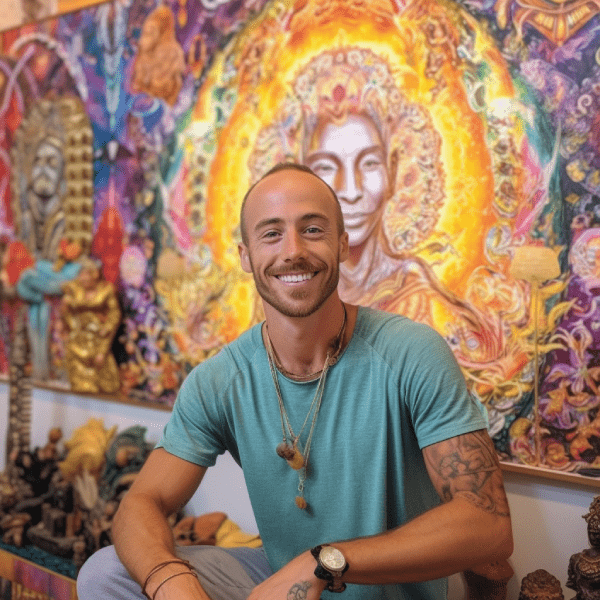Introduction
In today’s rapidly evolving world, there is a growing movement of individuals who seek to create businesses with a deeper sense of purpose. These individuals are known as soulpreneurs, and their approach to entrepreneurship goes beyond the traditional focus on profit maximization.
Instead, they aim to elevate humanity through their business endeavors by aligning their purpose with sustainable development goals. In this blog post, we will explore the nature of soulpreneurship and delve into the meaning of the quote, “Elevating humanity through business begins with knowing WHY your company exists.”
Understanding Soulpreneurship
Soulpreneurship is a concept that merges the entrepreneurial spirit with a deep sense of purpose and a desire to make a positive impact on society and the environment. Unlike traditional entrepreneurs who primarily focus on profit, soulpreneurs prioritize their mission and the well-being of people and the planet. They recognize that businesses can be powerful vehicles for change, and they strive to integrate sustainable practices, social responsibility, and ethical considerations into their operations.
Purpose as the foundation
For soulpreneurs, the pursuit of profit is not an end in itself but a necessary means to achieve their purpose. They recognize that profit can fuel growth, innovation, and the ability to create a lasting impact. However, they firmly believe that profit should be a byproduct of pursuing a higher goal—something that contributes to the betterment of humanity and the planet.
Aligning with sustainable development goals
Soulpreneurs understand the significance of the United Nations Sustainable Development Goals (SDGs) and integrate them into their business strategies. These goals address global challenges such as poverty, inequality, climate change, and environmental degradation. By aligning their purpose with specific SDGs, soulpreneurs contribute to a more sustainable and equitable future.
Creating shared value
Soulpreneurs go beyond traditional corporate social responsibility efforts. They embrace the concept of creating shared value, which involves identifying opportunities to generate economic value while simultaneously addressing social and environmental challenges. By embedding sustainability into their core business practices, soulpreneurs create win-win scenarios that benefit both their business and society at large.
Conscious decision-making
Soulpreneurs prioritize ethical considerations and conscious decision-making in all aspects of their business. They proactively seek out sustainable alternatives, minimize negative environmental impacts, and engage in fair and responsible practices throughout their supply chains. They foster transparency, accountability, and integrity, ensuring that their actions align with their purpose and the well-being of stakeholders.
Collaboration and collective impact
Soulpreneurs recognize that creating meaningful change requires collaboration and collective action. They actively seek partnerships with like-minded organizations, engage in knowledge-sharing networks, and join forces with stakeholders who share their values. By leveraging the power of collaboration, soulpreneurs amplify their impact and contribute to the broader movement towards sustainable development.
Conclusion
Soulpreneurs are a new breed of entrepreneurs who believe that businesses have the potential to be forces for good. By embracing purpose, aligning with sustainable development goals, prioritizing conscious decision-making, and fostering collaboration, soulpreneurs elevate humanity through their businesses. They serve as beacons of hope, demonstrating that profit and purpose can coexist harmoniously and that business can be a catalyst for positive change in the world.
Here are a few examples of world-renowned soulpreneurs who have gained recognition for their impactful businesses:
- Yvon Chouinard (Patagonia): Yvon Chouinard, the founder of outdoor apparel company Patagonia, is often regarded as a soulpreneur. He built Patagonia on the principles of environmental sustainability and social responsibility. The company is known for its commitment to producing high-quality products while minimizing harm to the environment. Patagonia has implemented various initiatives, such as the “1% for the Planet” campaign, where they donate 1% of their sales to environmental causes.
- Anita Roddick (The Body Shop): Anita Roddick, the late founder of The Body Shop, was a pioneer in the field of ethical beauty products. She created a global cosmetics brand that promoted fair trade, community empowerment, and environmental sustainability. The Body Shop actively campaigned against animal testing and supported various social causes, such as the fight against domestic violence and human trafficking.
- Blake Mycoskie (TOMS): Blake Mycoskie, the founder of TOMS, is renowned for his innovative business model that combines commerce with social impact. TOMS is known for its “One for One” initiative, where for every pair of shoes purchased, a pair is donated to a child in need. The company has also expanded into other product categories and philanthropic endeavors, including eyewear, clean water initiatives, and support for maternal health programs.
- Muhammad Yunus (Grameen Bank): Muhammad Yunus, a Nobel Peace Prize laureate, is recognized as a soulpreneur for his groundbreaking work in microfinance and poverty alleviation. He founded Grameen Bank, which provides small loans to impoverished individuals, particularly women, to help them start or expand their own businesses. Yunus’s efforts have empowered millions of people to break the cycle of poverty and improve their livelihoods.
- Richard Branson (Virgin Group): Richard Branson, the founder of Virgin Group, is known for his entrepreneurial ventures across various industries. While Branson’s business empire encompasses diverse sectors, he has consistently demonstrated a commitment to social and environmental causes. He has launched initiatives like “The Elders” (an independent group of global leaders working for peace and human rights) and the “Carbon War Room” (aimed at combating climate change).
- Elon Musk (Tesla, SpaceX): Elon Musk, the visionary entrepreneur behind companies like Tesla and SpaceX, is often seen as a soulpreneur due to his dedication to creating a sustainable future. Musk’s companies are at the forefront of clean energy and space exploration, aiming to reduce dependence on fossil fuels and make humanity a multi-planetary species. His ambitious goals align with the broader mission of sustainable development.
These are just a few examples of soulpreneurs who have made a significant impact through their purpose-driven businesses. They inspire and pave the way for others to create ventures that prioritize people, the planet, and sustainable development goals alongside profitability.



